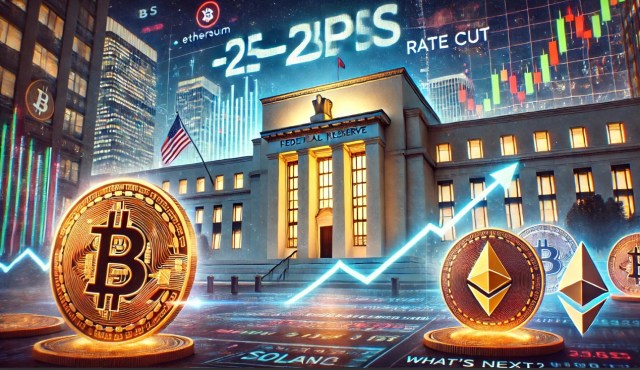DMCC and VARA Forge Landmark Partnership to Accelerate Tokenisation of Commodities

- Strategic alliance between DMCC and VARA aims to build the next-generation framework for tokenised commodities, strengthening Dubai’s role as a global Web3 and digital asset hub
- Joint initiatives will include pilot projects to tokenise gold, diamonds, and other commodities, alongside educational programs promoting market awareness and investor protection
- Partnership extends to aggregated data sharing, market growth insights, and contributions to VARA’s economic impact reports using DMCC benchmarks
The Dubai Multi Commodities Centre (DMCC), one of the world’s leading free zones and trade hubs, has signed a strategic partnership with the Dubai Virtual Assets Regulatory Authority (VARA) to accelerate the tokenisation of real-world commodities. The collaboration represents a major step toward integrating traditional markets with blockchain technology, positioning Dubai as a global leader in cryptocurrency, DeFi, and digital asset innovation.
As tokenisation continues to reshape global finance, this alliance combines DMCC’s extensive experience in commodities and trade infrastructure with VARA’s pioneering regulatory expertise. The partnership seeks to establish a secure, transparent, and scalable system that enables physical assets like gold and diamonds to be represented on the blockchain—unlocking new levels of liquidity, accessibility, and trust across global markets.
Initial pilot programs will explore how commodities can be efficiently tokenised and traded within compliant blockchain ecosystems. These initiatives will examine key aspects such as regulatory standards, technical integration, and investor safeguards, ultimately providing a blueprint for the tokenisation of tangible assets in regulated crypto markets.
Beyond tokenisation, the collaboration prioritises education and investor awareness. Through joint workshops, training sessions, and community engagement programs, DMCC and VARA aim to build understanding of tokenised assets—highlighting both their opportunities and risks. This focus on education and transparency supports the broader vision of creating a responsible, well-informed digital asset economy.
DMCC’s strong foundation in commodity-backed digital assets, such as gold-backed tokens enabled through its Tradeflow platform, provides a proven model for this initiative. With over 1,500 companies in the precious metals sector and more than 700 Web3 enterprises operating within the DMCC Crypto Centre, the organisation continues to drive blockchain adoption and innovation across the region.
The agreement also includes cooperation in data sharing, market research, and regulatory insights. DMCC will provide key benchmarks and industry analytics to support VARA’s data-driven approach to crypto regulation, promoting innovation while safeguarding market integrity and compliance.
As the DMCC–VARA partnership moves forward, it further solidifies Dubai’s reputation as a global hub for blockchain, Web3, and digital asset ecosystems. DMCC’s Crypto Centre has recorded 38% year-on-year growth in crypto companies, underlining its pivotal role in the region’s rapidly expanding digital economy. With nearly 26,000 member companies contributing 15% of Dubai’s foreign investment and 7% of its GDP, DMCC remains at the heart of the city’s ambition to lead the next era of tokenised trade and blockchain innovation.
This article was originally published as DMCC and VARA Forge Landmark Partnership to Accelerate Tokenisation of Commodities on Crypto Breaking News – your trusted source for crypto news, Bitcoin news, and blockchain updates.
You May Also Like

Franklin Templeton updates XRP ETF filing for imminent launch

Fed Lowers Rates By 25bps: How Bitcoin And Crypto Prices Responded And What’s Next

Canada’s budget promises laws to regulate stablecoins, following US
Canada’s government unveiled a plan to regulate stablecoins, requiring fiat-backed issuers to maintain sufficient reserves and adopt robust risk management measures. Canada is set to introduce legislation regulating fiat-backed stablecoins under its federal budget for 2025, following the footsteps of the US, which passed landmark stablecoin laws in July.Stablecoin issuers will be required to hold sufficient reserves, establish redemption policies and implement various risk management frameworks, including measures to protect personal and financial data, according to the government’s 2025 budget released on Tuesday.The Bank of Canada would allocate $10 million over two years, starting in the 2026-2027 fiscal year, to ensure everything runs smoothly, followed by an estimated $5 million in annual costs that will be offset from stablecoin issuers regulated under the Retail Payment Activities Act.Read more